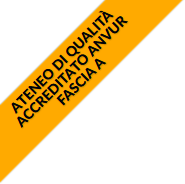SPHERIC is the organization that brings together the community of researchers and companies that deal with numerical methods called Smoothed Particle Hydrodynamics (SPH)
From Tuesday 16 to Thursday 18 June will be held the tenth edition of the SPHERIC International Workshop, hosted in the University thanks to the work of the researchers of the Hydraulics group of Department of Civil, Environmental, Land and Architecture Engineering – DICATeA, which have been carrying out research on these techniques since 2007.
![[cml_media_alt id="614"]spheric_immagine[/cml_media_alt]](http://www.hylab.unipr.it/wp-content/uploads/2015/05/spheric_immagine-1.jpg)
SPHERIC is the organization that brings together the community of researchers and companies that deal with numerical methods called Smoothed Particle Hydrodynamics (SPH). This organization includes about 70 members, including universities and industries, located in all parts of the world; deals with coordinating and promoting the scientific development and use of this type of techniques and annually organizes an International Workshop lasting 3 days. This appointment undoubtedly represents the most important moment of comparison in the world between researchers and users of this type of numerical techniques..
SPH techniques, born in the seventies for astrophysical applications and more recently applied to hydrodynamics, represent an innovative numerical method that allows you to simulate very complex fluid-dynamics problems that are difficult to simulate with classical computational methods.
SPH techniques are increasingly used for design and verification activities in various industrial sectors. For example, we mention:
- constructions: design of structures for the defense of coasts from storm surges, analysis of sediment transport phenomena, analysis of the stresses caused by sea waves on oil platforms and off-shore wind turbines;
- the automotive industry: optimization of the shape of the tanks of both cars and heavy vehicles, optimization of the shape of tires;
- the naval industry: optimization of the shape of the holds of oil tankers in order to limit the problems associated with sloshing;
- the aerospace industry: impact problems even at high speed.
- the metallurgical industry: optimization of laser cutting methods used by the metallurgical industry;
- the defense industry: modeling of impact problems (eg plane or helicopter falling overboard);
- the IT industry: development of parallel computing tools that make it possible to respond to the considerable computational burden required by this type of numerical techniques.
The event is organized under the patronage of the Municipality of Parma, the Parma Union of Industrialists, the ERCOFTAC Research Consortium and NVIDIA.
The past editions of the Workshop, which registered an ever increasing number of participants, were held in Rome in 2006, Madrid in 2007, Lausanne (EPFL) in 2008, Nantes (Ecole Centrale de Nantes) in 2009, Manchester (University of Manchester ) in 2010, Hamburg (Hamburg University of Technology) in 2011, Prato (Monash University, Australia) in 2012, Trondheim (Sintef) in 2013 and Paris (Electricité de France) in 2014.
![[cml_media_alt id="615"]spheric_1[/cml_media_alt]](http://hylabnew.unipr.it/wp-content/uploads/2015/05/spheric_1-1024x576.jpg)
![[cml_media_alt id="621"]spheric_2[/cml_media_alt]](http://hylabnew.unipr.it/wp-content/uploads/2015/05/spheric_2-1024x576.jpg)


